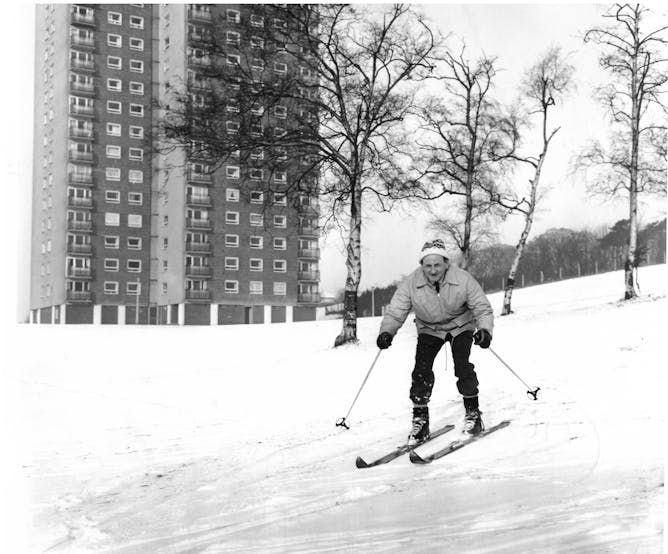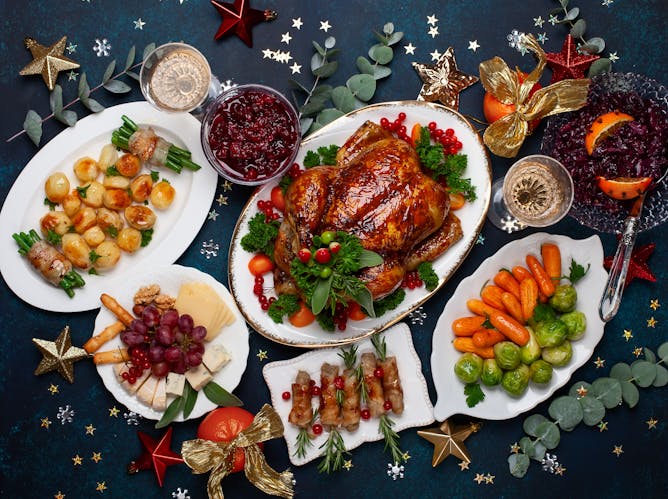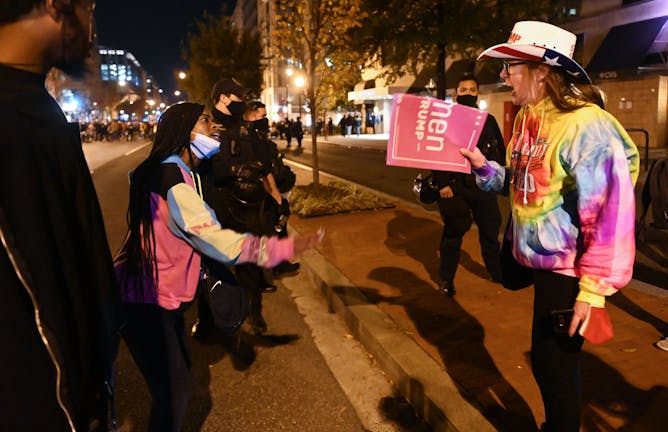|
|
|
|
This is normally the point when you receive an email from me saying we’re locking up the office for a short spell. But we did that on March 12. The Conversation though, carried on, with our editors, like so many of you, working from home.
Lots of our authors did likewise, writing for The Conversation while juggling domestic tasks and dealing with the challenge of doing research and delivering lectures remotely. Others had to continue working in their labs – some finding themselves at the heart of a story few of us could have imagined this time last year. They are true heroes of 2020.
After all that, a very unusual and somewhat denuded festive holiday now beckons. I hope you manage to enjoy the coming days despite missing the company of many of those who are closest to you.
We too will be having a break. This is the last of our standard daily emails of 2020. They will resume on January 4, 2021. We will still publish through the holiday period, but there will be fewer articles than at other times of the year. You will, however, receive a number of special emails highlighting particular themes we’ve covered in 2020.
Our current fundraising campaign also now draws to a close as the year ends. Your support is greatly appreciated, and donations can still be made here. The Conversation is a charity and relies upon the generosity of donors to expand its unique editorial offering – a news service provided by academic experts and journalists working in concert.
So, at the end of this strange, sad and unsettling year, we thank all our readers and authors. Your support is greatly valued. All the festive best, and here’s to a brighter 2021.
|
Stephen Khan
Executive Editor
|

|
|

February 1969 afforded a spot of skiing for Nottingham residents.
Photographer: Nottingham Post, courtesy: Nottingham Local Studies photographic collection
Georgina Endfield, University of Liverpool
Food shortages, festivities and far-off fighting – Britain's coldest winters were among its most memorable.
|

Are your spices fake?
Kolpakova Svetlana/ Shutterstock
Chris Elliott, Queen's University Belfast; Simon Haughey, Queen's University Belfast
Fraudulent spices aren't new – but sage is the latest victim.
|

A Trump supporter and an anti-Trump demonstrator shout at each other near Black Lives Matter Plaza in Washington, D.C., Nov. 14, 2020.
Roberto Schmidt/AFP via Getty Images
Arie Kruglanski, University of Maryland; Robert B. Talisse, Vanderbilt University
Biden's winning campaign message was one of unity. But even the people who study polarization can't agree on whether it's possible to unify the United States.
|
Politics + Society
|
-
Magdalena Frennhoff Larsén, University of Westminster
The ratification process on a trade deal usually takes months or even years, so can it be done for Brexit in a matter of days?
-
Tim Luckhurst, Durham University
Despite rationing and the Blitz, Christmas on the domestic front in 1940 was cheerful and optimistic.
-
Claudine Tinsman, University of Oxford
The absence of practical government guidance could result in companies overzealously blocking questionable content
|
|
Health + Medicine
|
-
Hazel Flight, Edge Hill University
The Christmas holidays can sometimes feel a little unhealthy but the ingredients that makeup a Christmas pudding are pretty nutritious.
-
Katherine Arbuthnott, University of Regina
New Year's resolutions are usually an opportunity to think about long-term goals. The uncertainty and restrictions of COVID-19 make 2021 a good year to focus on ways to help yourself in the short-term.
|
|
|
|
Environment + Energy
|
-
Magdalena Lenda, Polish Academy of Sciences; Johannes M H Knops, Xi'an Jiaotong Liverpool University
Our study is the first to research the impact of online misinformation on biological invasions.
-
Frank Wesselingh, Utrecht University; Matteo Lattuada, University of Giessen
Climate change means more water is evaporating than is flowing in.
|
|
Arts + Culture
|
-
Matthew McMahan, Emerson College
A professor of comedy examines holiday cards in times of struggles. They aren't all sad.
|
|
Science + Technology
|
-
Paul Salmon, University of the Sunshine Coast; Gemma Read, University of the Sunshine Coast; Jason Thompson, University of Melbourne; Scott McLean, University of the Sunshine Coast; Tony Carden, University of the Sunshine Coast
Imagine an advanced artificial intelligence took over from Santa. What could go wrong?
|
|
| |
Featured events
|

|
East Road, Cambridge, Cambridgeshire, CB11PT, United Kingdom of Great Britain and Northern Ireland — Anglia Ruskin University
|

|
Online, York, York, YO10 5DD, United Kingdom of Great Britain and Northern Ireland — University of York
|

|
East Road, Cambridge, Cambridgeshire, CB11PT, United Kingdom of Great Britain and Northern Ireland — Anglia Ruskin University
|

|
Lecture Theatre 1, Richmond Building, Portland Street, Portsmouth, Hampshire, PO1 3DE, United Kingdom of Great Britain and Northern Ireland — University of Portsmouth
|
|
|
|
| |
| |
| |
| |
| |
|
|
|
|
|
|
|